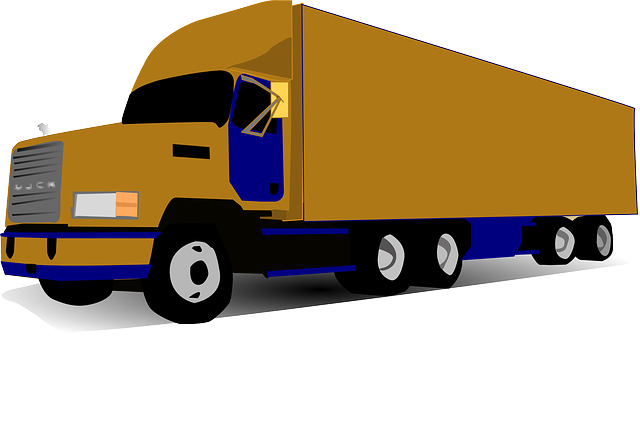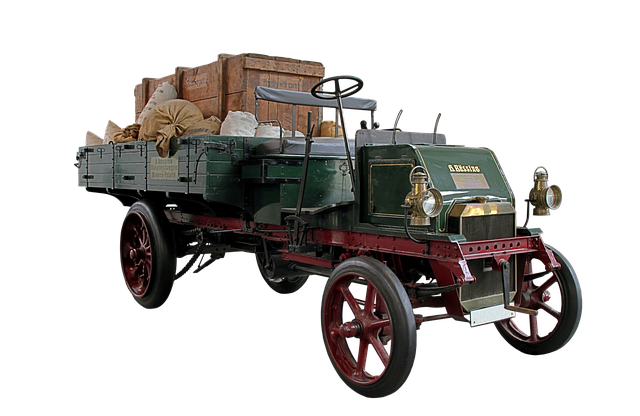Startups entering the trucking industry need trucking insurance for legal compliance, risk management, and financial security. Key to this is cargo coverage which protects against loss or damage to goods during transit. New fleet operators should assess their specific risks and compare policies from specialized providers, focusing on cargo coverage tailored to their operations and new fleets. Regular reviews are essential as business needs evolve.
Introducing essential trucking insurance for startups—a crucial step towards securing your fleet’s future. In today’s competitive landscape, understanding the importance of comprehensive cargo coverage for new fleets is paramount. This article guides you through navigating the process, exploring types of cargo coverage tailored for startups, and key considerations when choosing a policy. By the end, ensure you’re equipped with the knowledge to protect your investment and mitigate risks effectively.
Understanding the Importance of Trucking Insurance for Startups

For startups venturing into trucking, insurance is more than just a legal requirement—it’s a cornerstone of success and sustainability. As new fleets hit the road, they’re exposed to myriad risks, from accidents and cargo damage to liability claims. Trucking insurance offers crucial cargo coverage, protecting your valuable goods from potential losses or theft. It also insulates startups against significant financial repercussions arising from unexpected events, ensuring their survival and growth in a competitive market.
Moreover, having the right insurance policy demonstrates a startup’s commitment to responsible business practices and risk management. This is particularly important when dealing with valuable cargoes and establishing trust with clients. By prioritizing trucking insurance, startups can focus on expanding operations, investing in new fleets, and delivering services efficiently, knowing they have a safety net in place for unforeseen circumstances.
Types of Cargo Coverage for New Fleets

When starting a trucking business, one of the critical aspects to consider is choosing the right cargo coverage for your new fleet. This decision significantly impacts your operations’ safety and financial stability. There are several types of cargo insurance options tailored to meet various needs. The most common categories include:
1. Comprehensive Cargo Coverage: This option protects against all risks associated with transporting goods, from loss or damage during transit to theft or natural disasters. It’s ideal for new fleets looking to build a robust safety net, ensuring that unexpected events won’t cripple their financial health. 2. Specific Perils Coverage: As the name suggests, this type of coverage protects against specific identified risks like fire, flood, or vandalism. While it offers more limited protection than comprehensive coverage, it can be cost-effective for startups with well-defined risk profiles.
Key Considerations When Choosing a Trucking Insurance Policy

When choosing a trucking insurance policy, several key considerations come into play, especially for startups looking to protect their new fleets and valuable cargo. Firstly, assess the type of coverage needed based on your specific trucking operations. This includes understanding the liability risks associated with transporting goods, such as damage or loss during transit. Cargo coverage is crucial; ensure you have adequate protection for your products, whether it’s specialized cargo or general freight.
Additionally, consider the age and condition of your fleet. Newer trucks might require different insurance options compared to older models. You’ll want to balance comprehensive coverage with affordable rates that fit your startup’s budget. Compare policies from various providers to find the best fit; look for those offering tailored plans for new fleets and specific cargo types.
How to Navigate the Process and Ensure Comprehensive Protection

Navigating the world of trucking insurance as a startup can seem daunting, but with the right approach, it’s manageable. First, assess your specific needs, especially regarding cargo coverage and risks associated with new fleets. This involves understanding the types of insurance available, such as liability, cargo, and physical damage protection. Engage with reputable insurance providers who specialize in trucking to get tailored advice and quotes.
Remember that comprehensive protection isn’t just about meeting legal requirements; it’s also about safeguarding your investment and ensuring uninterrupted business operations. Compare policies meticulously, considering deductibles, coverage limits, and any additional benefits. Regularly review your policy as your fleet grows or operational needs change, ensuring you have the most suitable trucking insurance for your startup at all times.
For startups venturing into trucking, securing essential insurance is a pivotal step towards navigating the road ahead with confidence. By understanding the importance of trucking insurance and choosing the right policy that covers various aspects like cargo protection for new fleets, businesses can mitigate risks and ensure their operations run smoothly. With careful consideration and a comprehensive approach to coverage, startup truckers can focus on growing their fleet while staying protected against potential liabilities.
